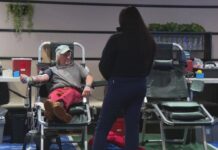Though the LGBT community has made important strides towards equality in Massachusetts and across the United States, we continue to experience health disparities and inequities in health care delivery. At Fenway Health, we work every day to make the world a healthier place and there are several important issues we will be working to address in 2015.
Last year’s Massachusetts legislative session ended without passage of An Act Relative to HIV-Associated Lipodystrophy Treatment. Lipodystrophy, or fat redistribution, is a problem with the way the body produces, uses, and stores fat that can have disfiguring effects on a person’s appearance and lead to an increased risk of social isolation and depression. Many HIV-positive people who took earlier regimens of antiretroviral medications experience lipodystrophy to one degree or another, and most health insurance companies do not cover treatment. It is important that we work with the legislature to make sure this legislation passes in the 2015 session.
We also need to advocate for better health insurance coverage for transgender-related medical costs. The Affordable Care Act created important anti-discrimination protections for transgender people in health care and public and private health insurance, but many medically necessary procedures for transgender people are still not covered by insurers. We need to work to change that. No one should be denied the chance to live a happy, healthy life because of shortfalls in how we pay for medical and behavioral health care.
There are important new HIV prevention tools that can help us dramatically decrease HIV transmission and one day get us to the point where we see zero new infections. Pre- and post-exposure prophylaxis (PrEP and PEP) have been shown to be very effective at stopping HIV transmission when used correctly, and we need to continue to educate those most at risk, including gay and bisexual men and transgender people, about these tools and how to access them. We also need to expand access to care and treatment for people living with HIV. HIV-positive people whose viral loads have been suppressed by medication live healthier lives and are much less likely to transmit HIV.
It’s a fact of life that with every day that passes, we all get a little bit older. LGBT older adults need access to the same resources as other elders, but many of the those who manage and staff health care, social, and assisted living programs for elders are not trained in how make those spaces friendly for LGBT people. No one should be forced to go back into the closet in order to get the care they need. We’ll continue to work through Fenway’s LGBT Aging Project and our other research and education initiatives to ensure LGBT elders have access to the same services and care as our neighbors.
The United States Centers for Disease Control and Prevention (CDC) estimates that 3.2 million Americans are chronically infected with hepatitis C and that 17,000 new people are infected each year. Untreated, Hepatitis C can lead to serious complications including jaundice, liver failure and death. There are several new treatment options for hepatitis C that have shown high success rates at clearing infection. Unfortunately, many people living with hepatitis C are unaware that they are infected. The CDC recommends blood tests for all at-risk people, including those living with HIV, current or former injection drug users, people born between 1945 and 1965, and recipients of blood transfusions or organ transplants before 1992.
We have the tools and the knowledge to make the world a healthier place for LGBT people, people living with HIV, and the larger community. Working together, we can help make sure that everyone is aware of these tools and that as many people have access to them as possible.
Stephen L. Boswell, MD, FACP
President & CEO, Fenway Health
Want to receive email updates about what’s happening at Fenway Health? Sign up here.









